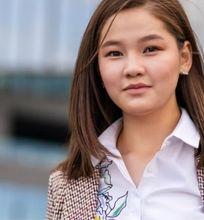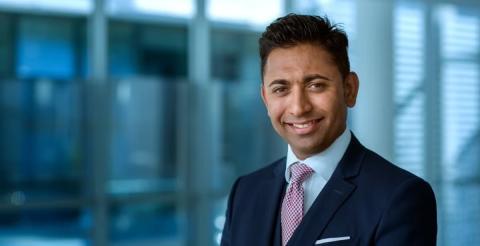How to become a diplomat in Australia


If you are looking for a career that can make a global difference, diplomacy may be a career to consider.
Diplomats represent their country abroad, promoting national interests and assisting citizens overseas. They negotiate treaties, handle international disputes and foster diplomatic relations. They also provide consular services and protect the rights of their home country’s citizens in foreign lands.
So, how do you become a diplomat? The pathway can vary.
Below, we’ll dive into the important skills and qualifications that can help you on your journey to becoming a diplomat.
How to become a diplomat
There is no single route into diplomatic service – diplomats can have a range of academic qualifications and career experiences, and the process of becoming a diplomat is not necessarily linear.
Broadly, here are some areas you might consider on your pathway to becoming a diplomat.
Educational background
Diplomats are not required to have a particular degree – in fact, they can come from various academic backgrounds.
Most diplomatic positions require at least a bachelor’s degree or equivalent level of education. Degrees in any discipline can lead to opportunities to become a diplomat. However, you will have an advantage if you study a related field, such as Political Science or International Relations.
Like many careers, having a postgraduate degree can accelerate your career progression and opportunities. Graduating with a master’s degree, such as the UTS Online Master of International Relations, can provide specialised knowledge and skills tailored to diplomacy, world affairs and global politics, helping you stand out to potential employers.
Extracurricular activities
Engaging in extracurricular activities can have many benefits for aspiring diplomats.
Volunteering with humanitarian organisations, participating in international forums and learning foreign languages provide valuable experiences that can boost your profile and give you practical insights into global affairs and political developments.
Look for internships or entry-level positions. Government departments like the Department of Foreign Affairs and Trade (DFAT) offer exposure to diplomatic work, letting you learn from experienced professionals and develop skills applicable to a diplomatic career.
Such experiences strengthen your resume, demonstrate your commitment to service and a proactive approach to personal development. You may also develop a deeper understanding of global affairs, build a solid foundation for a diplomatic career and use the experiences as stepping stones to advanced roles.
Apply for an APS Role or a government graduate program
Securing a role in the Australian Public Service (APS) or a government graduate program is an excellent step toward becoming a diplomat.
DFAT offers graduate programs to develop the next generation of public servants and diplomats. Securing a role in the Australian Public Service (APS) or a government graduate program is an excellent step toward becoming a diplomat. For example, DFAT offers graduate programs to the next generation of public servants and diplomats.
These roles often provide comprehensive training, mentoring and exposure to international affairs, policy development, foreign language, foreign policy and public administration. Participants can gain a deep understanding of government operations and the skills to represent Australia globally.
You’ll also access invaluable networking opportunities with senior officials and peers in a relevant field that can provide insights into potential career paths and connections for professional growth.
Secure a Foreign Affairs and Trade Officer role
After securing a position within the APS, many prospective diplomats aim for roles aligned with foreign service, such as working as a Foreign Affairs and Trade Officer. This role prepares you for overseas assignments representing Australia’s interests and building international relationships.
Alternatively, Foreign Service Officers negotiate trade agreements, analyse international economic trends and manage diplomatic missions in other countries and at home. You’ll gain experience directly applicable to a diplomat’s core functions, hone your strategic thinking and problem-solving skills and collaborate with international counterparts, giving you a deeper understanding of global diplomacy.
Skills and attributes
Although not necessarily a requirement to becoming a diplomat, many skills and attributes can be advantageous to your career in this field.
These include:
- Knowledge and interest in international affairs: An interest in global issues and international relations.
- Cultural adaptability: The ability to adapt to different cultural environments and work effectively with diverse groups.
- Critical thinking: The ability to analyse complex situations and develop strategic solutions.
- Problem-solving skills: Practical approaches for conflict resolution and addressing challenges.
- International and intercultural engagement: Proficiency in engaging with global and multicultural contexts.
- Effective communication and language skills: Proficiency in foreign languages and cultural sensitivity.
- Willingness to work worldwide: Flexibility and readiness to relocate and work internationally for extended periods.
Gain a passport to global influence
Becoming a diplomat in Australia offers exciting opportunities and meaningful experiences. The UTS Online Master of International Relations can help you begin your journey to this rewarding career.
The course provides a foundation for impacting the global stage. It delves deeply into the complex dynamics of International Relations, giving you the knowledge and skills necessary to thrive in a rapidly evolving workplace. You’ll develop the strong intercultural abilities essential for effective communication and collaboration in global workplaces.
The curriculum covers a broad range of topics, such as global communication, cross-cultural strategies, foreign policy, geopolitics, sustainability, ethical considerations and international crime prevention.
You can also customise your learning journey and career prospects with a choice of specialisations in Business, Health, Strategic Communication, Sustainability or Technology Management, or select elective subjects from across these areas. Learn how to represent national interests and build positive relationships across cultures with the UTS Online Master of International Relations.
Learn more about the UTS Online Master of International Relations by getting in touch with our Student Enrolment Advisors today at 1300 477 423.





